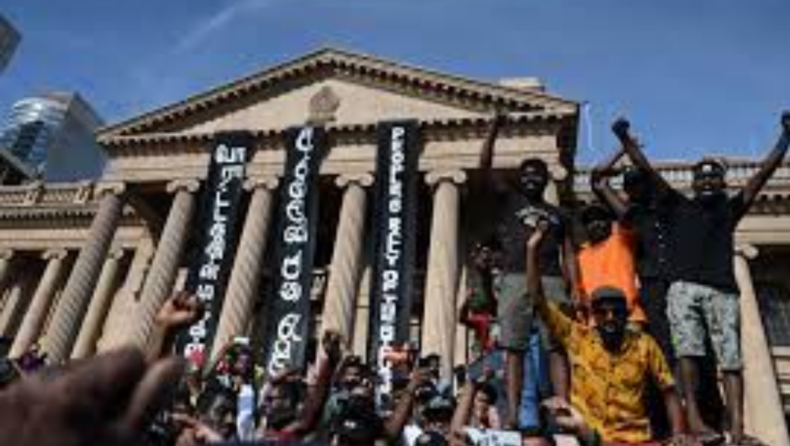The International Monetary Fund (IMF) on Thursday approved a $2.9 billion loan to Sri Lanka, Reuters reported. The island nation, grappling with its worst economic crisis since independence in 1948, witnessed widespread protests earlier this year, forcing Gotabaya Rajapaksa to resign as president and slinging Ranil Wickremesinghe to power.
On Tuesday, President Wickremesinghe, who is also the country’s finance minister, presented his first budget, aiming to increase revenue and fight inflation.
So what happens next…
The agreement between Sri Lanka and the IMF is only preliminary and must be approved by the IMF’s management and its Board. It will also only be carried out if the Sri Lankan authorities carry out the previously agreed measures.
“The agreement at the staff level is just the beginning of a long road to Sri Lanka,” the senior said IMF official Peter Breuer quoted by Reuters. “The authorities have already started the reform process and it must continue with determination.”
https://twitter.com/SCMPNews/status/1565529443921039361?s=20&t=rbek-aPyPme-zvBl7E_HYA
On Thursday afternoon, hours after the IMF announcement, Milinda Moragoda, High Commissioner from Sri Lanka to India, told the idea exchange program on The Indian Express: “You have outlined a restructuring program
https://twitter.com/the_hindu/status/1565343755678666752?s=20&t=rbek-aPyPme-zvBl7E_HYA
In its statement, the IMF said that “debt relief from Sri Lanka’s creditors and additional financing from multilateral partners will be required to ensure debt sustainability and fill funding gaps.”
How will IMF funds help Sri Lanka?
The funds will be disbursed over four years to stabilize the economy and boost growth, Reuters report, the package will help increase government revenue to support fiscal consolidation, introduce new fuel and electricity prices, increase social spending, strengthen central bank autonomy, and depleted foreign exchange reserves even to rebuild.
https://twitter.com/nytimesworld/status/1565329129527975938?s=20&t=rbek-aPyPme-zvBl7E_HYA
“Starting from one of the lowest income levels in the world, the program will implement important tax reforms. These reforms include a more progressive income tax and an expansion of the tax base for corporate income tax and value-added tax,” the IMF statement said.
India, the High Commissioner said, had stood by Sri Lanka “right through this year, without having any idea of where this (the crisis) was going… That’s why we are so grateful. India encouraged us to go to the IMF, India was the only country, the only partner, who stepped up without us having any kind of program, so now we are hoping that others would come in…”
https://twitter.com/Dailymirror_SL/status/1565288147797172224?s=20&t=rbek-aPyPme-zvBl7E_HYA
The IMF said, “The program aims to reach a primary surplus of 2.3 percent of GDP by 2024.”
What is the situation in Sri Lanka now?
Sri Lanka owes more than US$51 billion in external debt, of which US$28 billion is due by 2028, reported The Associated Press. According to the IMF, the country’s economy will contract by 8.7% in 2022, while inflation will top 60%.
On Tuesday, President Wickremesinghe proposed a budget that would increase government revenue. to about 15% of GDP by 2025, reducing public sector debt, controlling inflation, and raising VAT from the current 12% to 15%, Reuters reported.
https://twitter.com/gee_oni/status/1565217506746404865?s=20&t=rbek-aPyPme-zvBl7E_HYA
He also revised the country’s deficit forecast for 2022 to 9.8% of gross domestic product from a previous 8.8%. On the spot, Wickremesinghe said that international organizations, including The United States, launched food security programs while schools and universities reopened.
Why is Sri Lanka’s economy a mess?
Economists say the crisis stems from internal factors such as years of mismanagement and corruption. Conditions have worsened in the USA in deteriorated past years. In 2019, more than 260 people were killed in suicide bombings in churches and hotels at Easter. This devastated tourism, a major source of foreign exchange.
High Commissioner Moragoda pointed to the historical reasons and long-term policy decisions that contributed to the crisis, which eventually reached per capita. after the Coronaviruspandemic and the war in Ukraine. The High Commissioner recalled legendary Singaporean statesman Lee Kuan Yew’s cryptic description of Singapore’s democracy Sri Lanka: “Sri Lankan democracy is a regular auction of non-existent resources,” LKY said.
What’s in store for the people of Sri Lanka?
High Commissioner Moragoda pointed to the structural problems in the Sri Lankan economy in sectors such as electricity, oil, financial services, and telecommunications that need to be addressed. Some deregulation has already started and needs to be accelerated. There must also be a major recapitalization of banks.
https://twitter.com/TheKootneeti/status/1565244605951782912?s=20&t=rbek-aPyPme-zvBl7E_HYA













